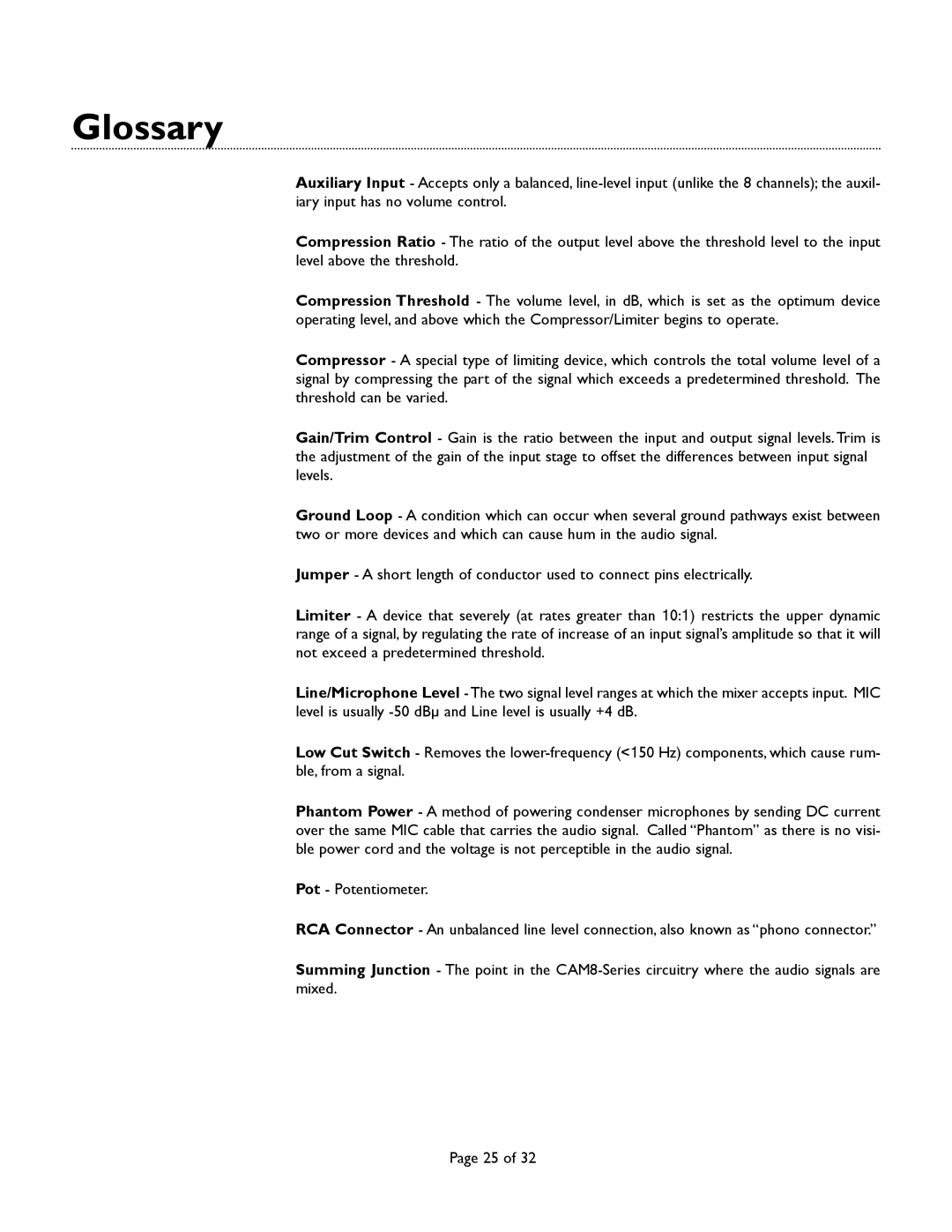Glossary
Auxiliary Input - Accepts only a balanced,
Compression Ratio - The ratio of the output level above the threshold level to the input level above the threshold.
Compression Threshold - The volume level, in dB, which is set as the optimum device operating level, and above which the Compressor/Limiter begins to operate.
Compressor - A special type of limiting device, which controls the total volume level of a signal by compressing the part of the signal which exceeds a predetermined threshold. The threshold can be varied.
Gain/Trim Control - Gain is the ratio between the input and output signal levels. Trim is the adjustment of the gain of the input stage to offset the differences between input signal levels.
Ground Loop - A condition which can occur when several ground pathways exist between two or more devices and which can cause hum in the audio signal.
Jumper - A short length of conductor used to connect pins electrically.
Limiter - A device that severely (at rates greater than 10:1) restricts the upper dynamic range of a signal, by regulating the rate of increase of an input signal’s amplitude so that it will not exceed a predetermined threshold.
Line/Microphone Level - The two signal level ranges at which the mixer accepts input. MIC level is usually
Low Cut Switch - Removes the
Phantom Power - A method of powering condenser microphones by sending DC current over the same MIC cable that carries the audio signal. Called “Phantom” as there is no visi- ble power cord and the voltage is not perceptible in the audio signal.
Pot - Potentiometer.
RCA Connector - An unbalanced line level connection, also known as “phono connector.”
Summing Junction - The point in the
Page 25 of 32
